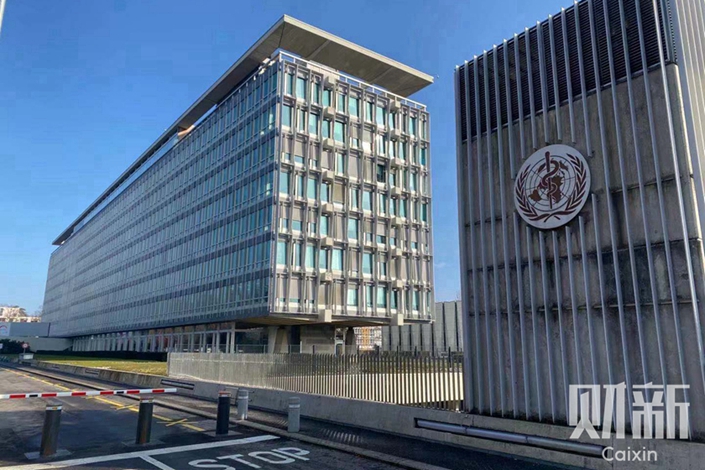Update: WHO Cautions Against Travel, Trade Restrictions as It Declares Coronavirus Emergency

 |
The World Health Organization (WHO) has declared an international health emergency in response to the rapid spread of a new coronavirus in China, but simultaneously advised against restricting travel or trade to the country even as many countries were doing just that.
Meeting at its headquarters in Geneva, the WHO’s Emergency Committee made the emergency declaration after considering that the virus has now spread to 20 countries. But it was also careful to emphasize that the step was not “a vote of no confidence in China.”
“The main reason for this declaration is not because of what is happening in China but because of what is happening in other countries,” said WHO Director-General Tedros Adhanom Ghebreyesus. He said he had confidence in the Chinese response, but added the WHO is concerned that the virus was spreading in “countries with weaker health systems, which are ill-prepared to deal with it.”
The global crisis designation, officially a “Public Health Emergency of International Concern” (PHEIC), would allow a number of other governments to enact pandemic preparedness plans linked to such a declaration, said Adam Kamradt-Scott, a disease control expert at the Centre for International Security Studies at the University of Sydney in Australia.
“In addition, we usually see governments more willing to deploy healthcare professionals and public health experts when a PHEIC declaration is made, and if the WHO requests financial assistance to coordinate the outbreak, governments are usually more willing to assist,” he said.
But the first of the WHO Director-General’s seven temporary recommendations — coming before the need to support countries with weaker health systems or accelerate vaccine development — was that there was no reason to “unnecessarily interfere with international travel and trade.”
That declaration came as many global airlines, including ones from the U.S., Germany and Britain, were announcing mass cancellations and in some cases even halting all flights to China. At the same time, some foreign companies have indicated they may stop trading with China to reduce the chances for disruptions that could arise, for example, if Chinese ports are temporarily closed.
The WHO’s recommendation calling on countries not to interfere with travel or trade came as little surprise to insiders, who cited the body’s need to balance economic and political needs against public health ones. But some experts said it was the wrong move.
“WHO is putting trade and business above health,” said Marylouise McLaws, an Australian infection control expert who worked with the WHO to review China’s response to the SARS crisis of 2003, which involved another new coronavirus. “Usually they advise against travel restrictions based on economics and concern for impacting the livelihood of countries, and labeling them as unsafe,” she said.
Given the coronavirus’s rapid spread, McLaws said a “quarantine approach (was needed) to stop it in its tracks,” and that anything else was “ethically compromised.”
Now that a PHEIC has been declared, WHO member countries will be required to inform the U.N. body if they take any travel measures against China, and they are cautioned against “actions that promote stigma or discrimination,” the Emergency Committee reiterated in a statement after the meeting.
But even in the hours since the health emergency was declared, Singapore has banned all Chinese passport holders and people who have visited China in the last 14 days from entering or transiting through the country.
Italy has cancelled all flights to China after reporting two local cases of infection by the coronavirus. And the U.S. issued a “do not travel” advisory for the country after Illinois health authorities identified the nation’s first instance of human-to-human spread of the virus.
Also on Friday, Mongolia said it was closing all ports of entry to and from China until March 2, Reuters reported. Canada closed its visa offices in China this week, Canadian newspaper The Star reported.
Kazakhstan suspended all travel to and from China on Wednesday, and also stopped issuing visas to Chinese citizens, Reuters reported.
WHO declarations, like those from most international regulators, are not enforceable, biosecurity expert Rania MacIntyre told Caixin previously.
This is the fifth time a PHEIC has been declared in a decade. Previous declarations included the pandemic flu outbreak in 2009, Ebola outbreaks in West Africa in 2014, Zika in 2016, Polio in 2014, and Ebola in the Democratic Republic of the Congo last year. The latter two are ongoing.
Contact reporter Flynn Murphy (flynnmurphy@caixin.com)

- PODCAST
- MOST POPULAR






